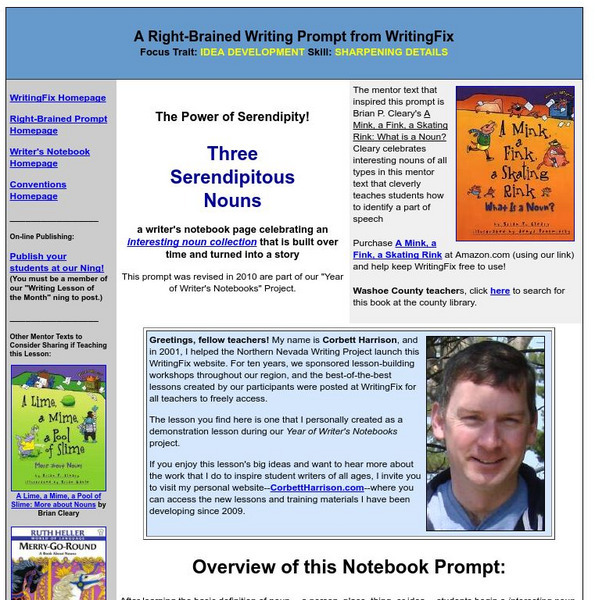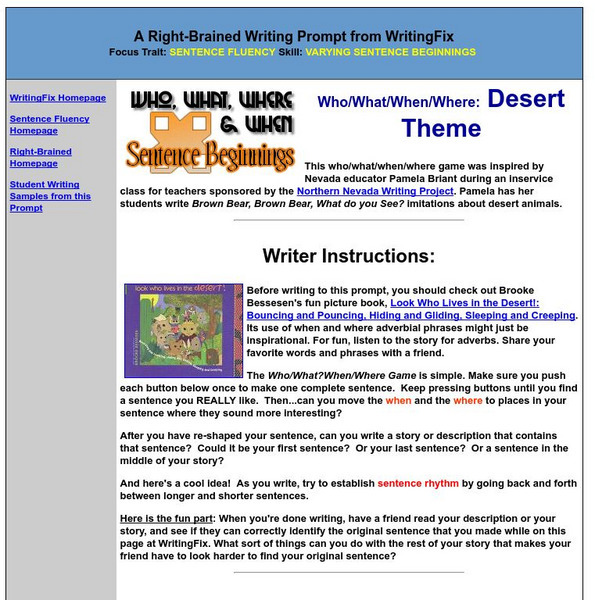Better Lesson
Better Lesson: Picture Walk and Partner Talk
Students will participate in a picture walk through the expository text "Seasons and Weather". The purpose of the picture walk is to prepare the students for reading the story and gives them practice in using picture clues to make...
Better Lesson
Better Lesson: Pictures and Text Work Together Too!
The class will read the informational text "Together They Were Better". As the teacher reads the book aloud, she/he will use the illustrations from each page to give young scholars clues as to the text on the page, helping them to see...
CPALMS
Cpalms: Understanding Key Details by Using Pancakes for Breakfast
[Free Registration/Login Required] In this instructional activity, learners will be read Pancakes for Breakfast by Tomie DePaola in order to understand and describe people, places, things and events in a text. They will create a book by...
Better Lesson
Better Lesson: Describing a Memory
Students will be able to use a combination of drawing, dictating, or writing to narrate a single event and provide a reaction to what happened. This lesson centers around the book "The Song and Dance Man", a great Grandparents Day activity!
Better Lesson
Better Lesson: Guess My Solid
Descriptive details are used as students develop a guessing game poster for others to try and guess their chosen solid. Included in this detailed lesson plan are videos, samples of student work, a printable worksheet, an assessment...
Other
Abrams Books: Picture Day Perfection: A Common Core State Standards Aligned
This activity and discussion guide uses the book "Picture Day Perfect" to teach multiple common core state standards for language arts. Included in this instructional activity are discussion questions, a craft project, printable...
Better Lesson
Better Lesson: Identifying the Difference Between Informational and Literary Text
Students will learn the difference between books that tell stories and books that give information. Multiple videos of different level reading groups engaged in this lesson, along with a printable activity sheet are included.
Better Lesson
Better Lesson: Where Did You Learn That?
As adults, we explore pictures, captions, diagrams and text, when reading any kind of informational piece. Kids can do this too! In this lesson, students will sort information that was obtained from pictures and diagrams, from that...
Better Lesson
Better Lesson: Work Out Together
Students will read an article and determine the author's point and identify the reasons the author gives to support his or her point. This lesson requires analysis by the students and a great deal of higher-order thinking as they...
Better Lesson
Better Lesson: Many Parts
Preparation for reading complex informational texts starts in K and First grade. Knowing the features of the genre, and how to navigate through it is one of the necessary stepping stones. This instructional activity introduces the...
CPALMS
Cpalms: What Do You Do With a Tail Like This?
[Free Registration/Login Required] In this lesson, students will use What Do You Do With A Tail Like This? by Steve Jenkins and Robin Page to identify the main topic and key details using the illustrations and text. Students will work to...
Read Works
Read Works: Lesson 1: Actions
In this resource, students will practice identifying and describing the actions of a character. Teachers will model these skills through the use of text and pictures from the story No, David! by David Shannon. Students will then draw a...
Better Lesson
Better Lesson: Speaking and Listening: Collaborative Conversations
Students will partner read The Kite, by Alma Flor Ada. Then work together in small collaborative groups to describe the character of the mother, the children, or the kitten. Included in this lesson are video demonstrations, printable...
Better Lesson
Better Lesson: Speaking, Listening and Writing Compound Contrasting Sentences
Students will be answering text-dependent questions in which they will have to describe the differences between the different characters, settings, and major events in our stories using complex contrasting sentences. The students will...
Reading Rockets
Reading Rockets: Using Collaborative Strategic Reading
In this article, the Collaborative Strategic Reading (CSR) technique is explained, along with research to support the use. The technique teaches students to use comprehension strategies, while working cooperatively, as they engage in the...
CPALMS
Cpalms: Wild About Authors and Illustrators
[Free Registration/Login Required] In this instructional activity, students learn about the roles of authors and illustrators through games and book-writing. Students will have an opportunity to act out the roles of illustrators and...
CPALMS
Cpalms: Giraffes and Zebras Oh My!
[Free Registration/Login Required] For this lesson, students will be able to ask and answer questions about key details in a text. Additionally, students will also be able to identify, compare, and contrast characteristics between two...
Other
Smekens Educational Solutions: Expose K 2 Readers to Annotation Strategies
This article discusses how to begin teaching students in K-2 to record their ideas about text using highlighters, colored pens, large graphic organizers, and sticky notes. Students can retell a story with a storyboard, use a web to find...
Michigan State University
Michigan State University: Interventions for Reading: Reconciled Reading
This intervention, which is based on Schema Theory, engages students in enrichment activities prior to reading the passage. In this way, students have the opportunity to activate and enhance existing knowledge before reading....
Read Works
Read Works: Vocabulary in Context Kindergarten Unit: Using Sound and Picture Cues
[Free Registration/Login Required] Lesson uses Growing Vegetable Soup by Lois Ehlert to teach students to use picture cues and initial word sounds to identify unknown words. Ideas for direct teaching, guided practice, and independent...
Writing Fix
Writing Fix: If You Give a Student an Animal
In this lesson plan, the book If You Give a Moose a Muffin, written by Laura Numeroff, is used as a mentor text for word choice. The content focus of the activity is to teach the students to take ownership of scientific and descriptive...
Florida Center for Reading Research
Florida Center for Reading Research: Expository Fact Strip [Pdf]
A lesson plan in which students read a text and identify the topic and four facts presented within the text. Materials are included.
Writing Fix
Writing Fix: Three Serendipitous Nouns
In this lesson, the book entitled A Mink, a Fink, a Skating Rink: What Is a Noun? (Words Are Categorical), written by Brian P. Cleary, is used as the mentor text. After learning the basic definition of noun, a person, place, thing, or...
Writing Fix
Writing Fix: Who/what/when/where: Desert Theme
In this lesson, Brooke Bessesen's picture book, Look Who Lives in the Desert!: Bouncing and Pouncing, Hiding and Gliding, Sleeping and Creeping, is used as the mentor text for its use of adverbial phrases. After several exposures to the...



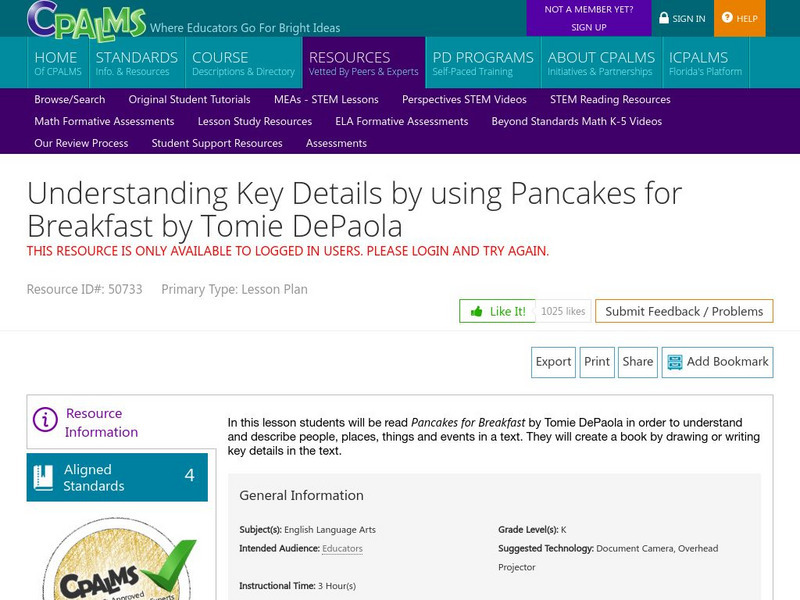


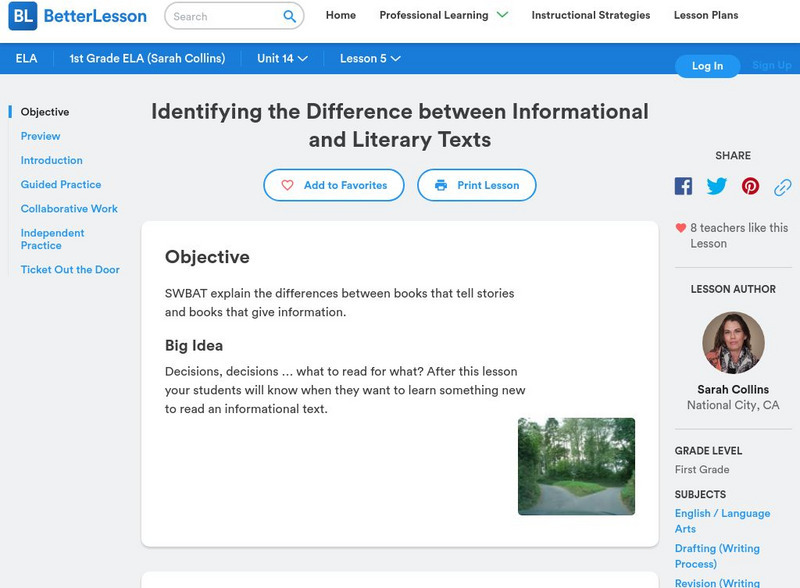

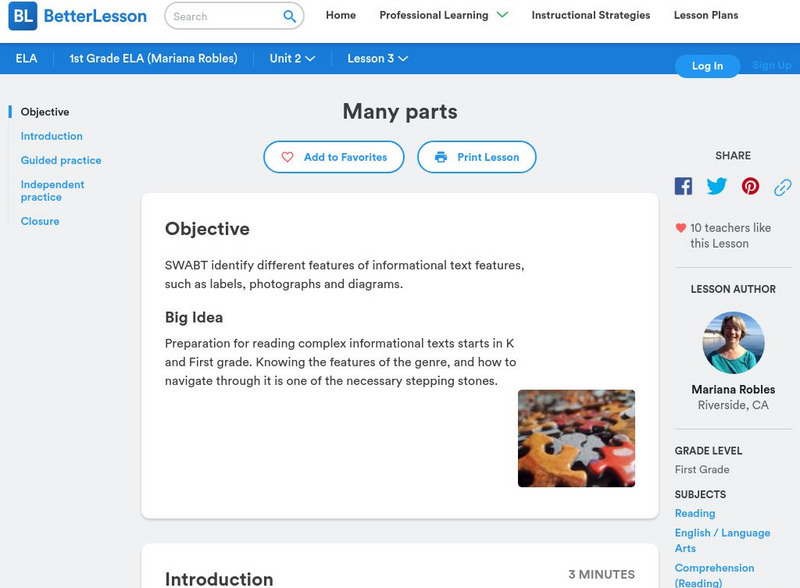

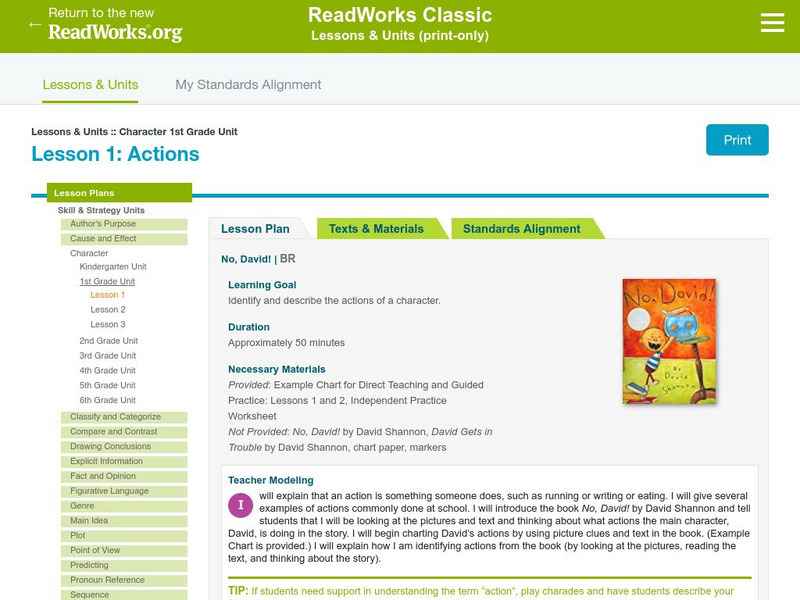





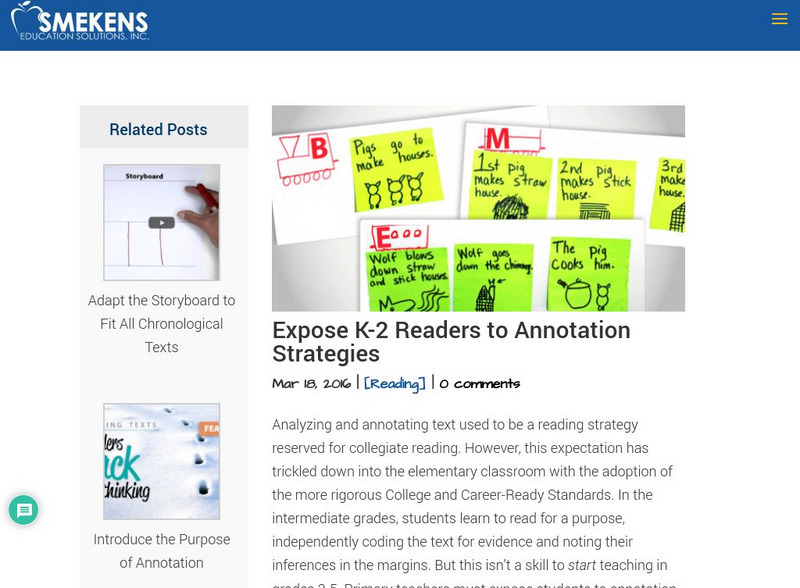



![Florida Center for Reading Research: Expository Fact Strip [Pdf] Lesson Plan Florida Center for Reading Research: Expository Fact Strip [Pdf] Lesson Plan](https://content.lessonplanet.com/knovation/original/101726-6e9433c83ac2e2bbad9c1c7411098251.jpg?1661786954)
